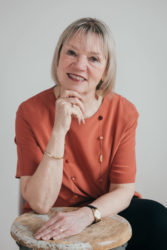In Our Prime: How Older Americans Are Reinventing the Road Ahead
Overview
In the early 1970s, the accepted wisdom among gerontologists about aging was that older Americans would need to essentially withdraw from society, and even their personal relationships. People were forced to retire at 65 whether they wanted to or not. The prevailing assumptions about older people were that they were frail, intellectually incompetent, irrelevant, and often a burden. Other stereotypes included “rigid, unproductive and uninformed, doddering, senile, deaf, and useless.”
A term was coined for this: ageism, the systematic stereotyping of and discrimination against people simply because they are old. And despite fifty years of change in how millions of older people live their lives, ageism remains so ingrained in our culture—especially the media—that it goes unnoticed as a bias and indeed is pretty much taken for granted. In fact, ageism was especially blatant during the early months of the COVID pandemic.
Yet, at the same time, older people are defying these stereotypes: millions are healthier, more socially and politically engaged, working longer, and living longer than previous generations, and often feel fifteen years younger than our chronological age. In this lecture, Professor Susan Douglas will argue that we are in the midst of a demographic revolution, with more people over fifty than at any time in our history. Drawing from video clips and media images, Professor Douglas will illustrate both the persistence of ageism as well as the challenges to it. And while ageism affects everyone, she will note how it is especially targeted to women.
Recommended Reading:
The Chair Rocks: A Manifesto Against Ageism, by Ashton Applewhite
In Our Prime: How Older Women Are Reinventing the Road Ahead, by Susan J. Douglas
Women Rowing North, by Mary Pipher


